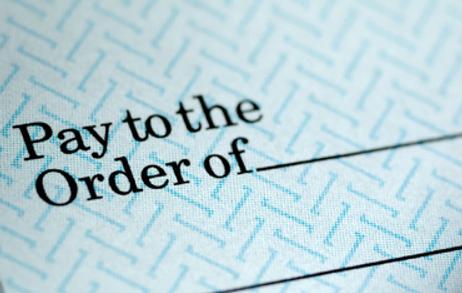Scholarship Tax Credit ProgramsSchool choice has been a fact in American K-12 education since 1989. That year the State of Wisconsin passed a voucher program which aimed to help students from low-income families in Milwaukee. Since then 39 states have established school choice programs. Depending on the state, school choice programs have expanded to include educational savings accounts, tax credit scholarships, and individual tax credit/deduction which parents can use to send their children to a private school.
Most states also allow parents to transfer their children from underperforming public schools to higher-performing public schools. In addition, many states have permitted the establishment of charter schools as one more alternative to an underperforming public school. Because allocating taxpayer funding to educational resources other than public schools is controversial, numerous legal challenges have been filed. Depending on the state, you will see a variety of workarounds including the afore-mentioned educational savings accounts, tax credit scholarships, and individual tax credits/deductions.
According to the American Federation for Children, the following states now have some form of funding for school choice program. In fact, several states offer several educational choice options. For the latest information https://www.federationforchildren.org/
- Alabama
- Arizona
- Florida
- Georgia
- Indiana
- Iowa
- Louisiana
- New Hampshire
- North Carolina
- Ohio
- Oklahoma
- Pennsylvania
- Rhode Island
- South Carolina
- Utah
- Virginia
- Wisconsin
Other resources include Noodle which has assembled a useful guide to the various educational choice options on a regional and state basis.
School Choice Week offers yet another overview of states which have educational choice programs.
Vouchers
What exactly are vouchers? According to Dictionary.com, the definition of a voucher is "a government cash grant or tax credit for parents, equal to all or part of the cost of educating their child at an elementary or secondary school of their choice". In other words, a voucher worth $2,500 would use $2,500 from the funds allocated to the local school district. Put another way, the local school district would have $2,500 less to spend. Multiply that by 100 students, and you can see how this adds up as a significant reduction of revenue for the local school district. This is why the defenders of public schools argue that vouchers are an attack on public education. They claim that vouchers reduce the amount of money available for public education. The proponents of vouchers, on the other hand, claim that vouchers merely allocate funds to another education option or choice.
How many students nationwide benefit from voucher programs? In 2014 approximately 308,000 students were recipients of some kind of tax dollars in voucher programs or variations thereof. That is 0.006% of the K-12 public school student population which was approximately 50 million at the beginning of the 2014 school year. The actual expenditure is in the millions of dollars which like the number of students in voucher programs is tiny.
What is the future of voucher programs? As of 2018 voucher programs are state-sponsored, state-managed and state-funded programs. Some politicians, however, would like to see federal funds used for voucher programs nationwide. Why? Because their constituents are dissatisfied with underperforming public schools.
What does the public education community think about vouchers? Needless to say, voucher programs in all their forms and variations are complete anathema to the teachers' unions and the supporters of public education. Why? Because urgently needed funds are being diverted from public schools to private schools. The other issue which supporters of public education increasingly object to is a lack of accountability.
Voucher programs style themselves as private school choice programs. Private school choice sounds more palatable than the much-maligned and opposed voucher programs The idea is that the state will allocate a grant to eligible families in order for them to be able to afford to send their children to a private school as opposed to sending their children to a failing public school. The concept seems well-intentioned enough until you lift the hood and see what's going on.
Corruption in voucher programs is an issue as it is in any publicly-funded entity which is not monitored carefully and frequently. There are always going to be folks who will try to game the system. They do it with Medicare, taxes and just about anything else you care to think of. It just seems a shame the mean-spirited, greedy individuals would steal money meant to provide a good education for their students. The stories I read about schools receiving state voucher program grants essentially because they claimed to be running a school makes me wonder if the states involved have established proper reporting and accounting procedures. Perhaps they established reporting but didn't fund the oversight of the programs. It varies from state to state.
In many cases curriculum is an issue. It is a given in private schools that they can teach anything they want as long as they meet minimum state standards with respect to the core subjects. The core subjects typically are English, reading and language arts, mathematics and science. Once the curriculum satisfies the state requirements for those core subjects, the school is free to teach any other subjects it chooses. If the school wishes to teach creationism or a particular religious view, it is free to do so.
Public funding tends to blur these lines of what can be taught. One would assume that a school which is funded entirely by private funds can teach whatever it wants. On the other hand, you would think that private schools which accept public funds would be required to observe applicable public laws regarding what can and cannot be taught in public schools. Apparently, that is not the case as creationism and other elements of religious fundamentalism are evident at hundreds of private schools which accept public funds in school choice or voucher programs.
The National Educators Association states very clearly that voucher programs do not seem to be held to the same standard as public schools.
"The Educational Case Against Vouchers
Student achievement ought to be the driving force behind any education reform initiative. See what research says about the relationship between vouchers and student achievement.
Americans want consistent standards for students. Where vouchers are in place -- Milwaukee, Cleveland, and Florida -- a two-tiered system has been set up that holds students in public and private schools to different standards.
NEA and its affiliates support direct efforts to improve public schools. There is no need to set up new threats to schools for not performing. What is needed is help for the students, teachers, and schools who are struggling."
Scholarship Tax Credit Programs
Approximately 15 states have tax credit programs in place. The way most of these programs work is that individuals and corporations can allocate a portion of their owed state taxes to the scholarship programs. Opponents of voucher programs point out that since the end result is the same, i.e., transferring public funds to private school scholarships, it amounts to the same thing as a voucher program.
The Cato Institute describes Scholarship Tax Credit Programs as follows:
"Scholarship tax credits encourage private donations to expand educational opportunities for low- and middle-income families. STCs grant tax credits to individual and/or corporate taxpayers who contribute to nonprofit scholarship organizations. Those nonprofits use the money to provide financial assistance to parents so that they can choose the education that works best for their children."
Scholarship Funds
Some states refer to their voucher programs as scholarship programs. Some states disperse the scholarship funds directly to the parents. Some states disperse the funds to the schools. I have no argument with how states disperse voucher funds. I think that the manner in which this is done plays to the issue of states rights and control of local education being in the hands of the state and local authorities. What I question is the accountability. As I reviewed the various state programs, I noticed rather frequently that many states do not require private school students to take any state assessment tests. I can accept that approach when I am sending my child to a well-established private school with a solid track record of achievement. But what I am reading about as I research this article is irresponsible owners setting up schools and accepting voucher funds which they use for purposes other than educating their students. Somehow the state doesn't find out what is going on until the school has closed and the owners have skipped town. That just doesn't seem right.
Do your own research.
I would suggest very strongly that any parent who is thinking about accepting vouchers for private school to exercise the same care and due diligence as she would when sending her child to any school. Here are some questions to ask:
- Is the school an established one?
- Does it have a good academic track record?
- Where do its students go after the complete their studies at that school? Are the teachers well-qualified?
- What is being taught?
- How is it being taught?
These are some of the basic questions you need to ask before you commit to any voucher program. Your child's education is at stake. Voucher programs do not look like they are going away any time soon. Indeed I suspect that they will expand nationwide. Having said that, it probably makes the most sense to focus on compliance and accountability issues so that the ultimate results are worth the expenditure of public funds.
Most voucher programs have good intentions. They seek to give parents options in a specific set of circumstances. Sometimes the state voucher law is written to give vouchers to students with a learning disability. Other laws are written with low-income families in mind. Interestingly enough there seem to very few conditions which the private schools accepting vouchers have to meet. If the school merely accepts students without being concerned as to the source of their funding, the school apparently does not have to sacrifice any of its independence. After all, being mostly free of regulations concerning what they can teach and how they teach is what private schools are all about. For the sake of our discussion, I am defining a private or independent school which receives its income from tuition and endowments as opposed to a grant from public funds.
The way vouchers work in some states, Ohio and Wisconsin, for example, vouchers are awarded on the basis of need. In a common example the family lives in a school district with underperforming public schools. There are a couple of private schools in the area which they would like to send their children to but really cannot afford to do so without some financial assistance. The state or local government provides a modest amount of financial assistance to a limited number of low-income families in order to allow them to send their children to private school. Typically to qualify, families must meet federal poverty guidelines, have a child in an underperforming school or already be in the state or local government voucher program. The precise eligibility requirements vary from state to state.
In other states, vouchers are awarded to students which have a learning disability for which an IEP is in place.
When the state awards the scholarships, those awards are made directly to the parents. Not the school. The awards are made only to schools which have registered to accept students with vouchers. What is the value of a typical award? Again, the award formulas vary from state to state. Generally, the awards are equal to the average per pupil allocation on a statewide basis.
How One Voucher Program Works
Ohio, for example, has had its voucher program in place since 2005. It has been so popular over the past seven years that it currently offers 60,000 scholarships. But the way in which the Ohio statutes have been written gives the awards to the parents. The schools do have to register with the state department of education. If they don't, they will not be eligible to accept students who have been awarded vouchers.
Another reason why private schools do not sacrifice their independence by accepting students with vouchers is that the voucher principle is essentially the same principle as that which is enshrined in the GI Bill. With the GI Bill, educational benefits are awarded to service people with the stipulation that these awards are for educational purposes only.
As long as the vouchers are paid to individuals as opposed to the private, parochial or independent (non-public) schools directly, I believe that the schools are not sacrificing any control to state, local and federal government.
Many cities have charter schools as another option for parents who are dissatisfied with their local public schools. Is a charter school a private school? No. It is a public K-12 school. It receives public funding but operates without some of the arcane regulations most public schools must abide by. 5 Things You Should Know About Charter Schools.gives an overview of the subject. Charter schools can be found in most major urban areas. Some of them are well-run and funded adequately. Others have been a financial disaster. Charter schools tend to be small and have small class sizes.
The Real Issue
But wait! There's more. The 800-pound gorilla in the room is really school reform. You wouldn't have states and local governments offering vouchers in the first place if public education in those localities were doing their job. As long as we continue to have stonewalling and resistance to educational reform, concerned parents are going to continue to demand that their legislators come up with solutions which give parents choices. Professor Angela Dills takes a closer look at vouchers in this video.
From the parents' perspective, all they want is for their children to be prepared for life and careers in the 21st-century workplaces. They want their children to be educated in schools where learning takes place. They want their children in schools where discipline is not an issue. Diversity and racial tolerance are the norms. Parents see these as advantages of a private school education which can be theirs thanks to a voucher program. Voucher programs offer these parents an option which they otherwise would never have had for their children.
From the teachers' perspective vouchers seem to be a real threat to public school funding. Both the National Education Association and the American Federation of Teachers have come out against vouchers.
From the politicians' perspective voucher programs show their constituents they are attempting to do something about under-performing schools. Unfortunately, in some states, politicians have passed voucher legislation which actually does not require the private school accepting the vouchers to do anything. Accountability for some reason is lacking.
Vouchers in the Courts
Ever since Milwaukee's Parental Choice Program was passed in 1990 voucher programs have faced a variety of legal challenges in the courts. In one of the more recent challenges, North Carolina's voucher legislation was declared unconstitutional for several reasons including the fact that the law required the private schools accepting vouchers to do nothing. Citizens United takes the view that vouchers should be opposed.
In truth, vouchers ought to be seen as recurring evidence that school reform is needed. Vouchers give parents choices. That's not a threat. That's competition.
Vouchers as choice
The idea behind vouchers is to give lower-income families an alternative to poorly performing public schools. Vouchers are a lightning rod in educational circles. Teachers unions universally despise them. Politicians avoid them. In places where voucher programs have taken hold, such as in Milwaukee and Cleveland, the response has been positive. The points of contention have to do with the use of public funds to pay parochial school fees and the diversion of public funds from public schools.
What vouchers are really all about is an attempt to provide some kind of school choice for parents with children in poorly performing public schools.





















